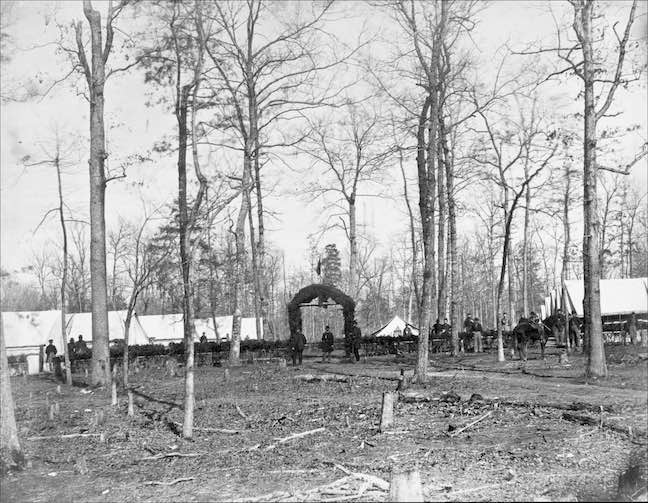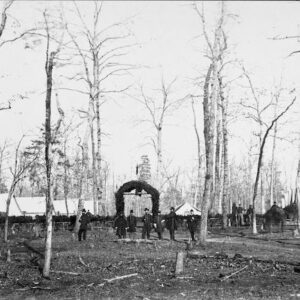| Credit: | by Gardner (James) |
|---|---|
| Date: | 1864.02 |
| Negative Size: | 8 in. x 10 in. |
| Equipment: | horse, saddle; wall tent |
| Locations & Lines: | 2nd Corps Hospital (Brandy Station VA); Brandy Station VA; Virginia |
| Military Units: | 2nd Corps; 2nd Corps (1st Division); Army of the Potomac; US Army |
| Sources: | Library of Congress; National Archives |
$4.99
File Details: AILJm, 400 DPI, TIFF, Original Photograph, 9.5 Mb
Image ID: AILJ
Gardners Photographic Sketch Book Of The War. Vol. 2, No. 54. Field Hospital, Second Army Corps, Brandy Station. February, 1864. Each corps, division, and brigade of the army, when encamped for any length of time, established a Field Hospital. The one represented here was located in the woods, near Brandy Station, on the Orange and Alexandria Railroad, in the winter of 1863 and 1864. The patients were composed of men suffering from the diseases incident to camp life, and were rendered as comfortable here as those in the city hospitals. Large stores were placed in each tent, and good fires kept up day and night. Floors were laid to protect the sick from the dampness of the earth, blankets were furnished in the greatest abundance, and every attention was shown the patients by experienced surgeons, while the Sanitary and Christian Commissions provided linen, delicacies, and a variety of reading matter. Some of the hospitals were surrounded by high cedar hedges, constructed by the attendants and convalescents, and were models of architectural beauty. Arches were erected over the entrances to the camp, and adorned with the badges of the respective divisions and brigades, and rustic seats placed on the south side of the tents, where the men whiled away many an hour in the sunshine. The trinkets cut from soft pine by the men were of every variety, and very curious. Elegant picture frames were made of small slips ingeniously interlaced, and were sold for large sums; the most elaborate realizing for their makers from fifty to one hundred dollars
The dead were always buried with military honors, and there were very few instances where the graves thus made were left without some appropriate memorial. There was a brotherhood among the patients akin to domestic love. Those who endured the sufferings of the Camp Hospital unconsciously learned to care for each others welfare, and many now look back to the weary days of hospital life as the beginning of friendship which time cannot weaken nor adversity estrange.


